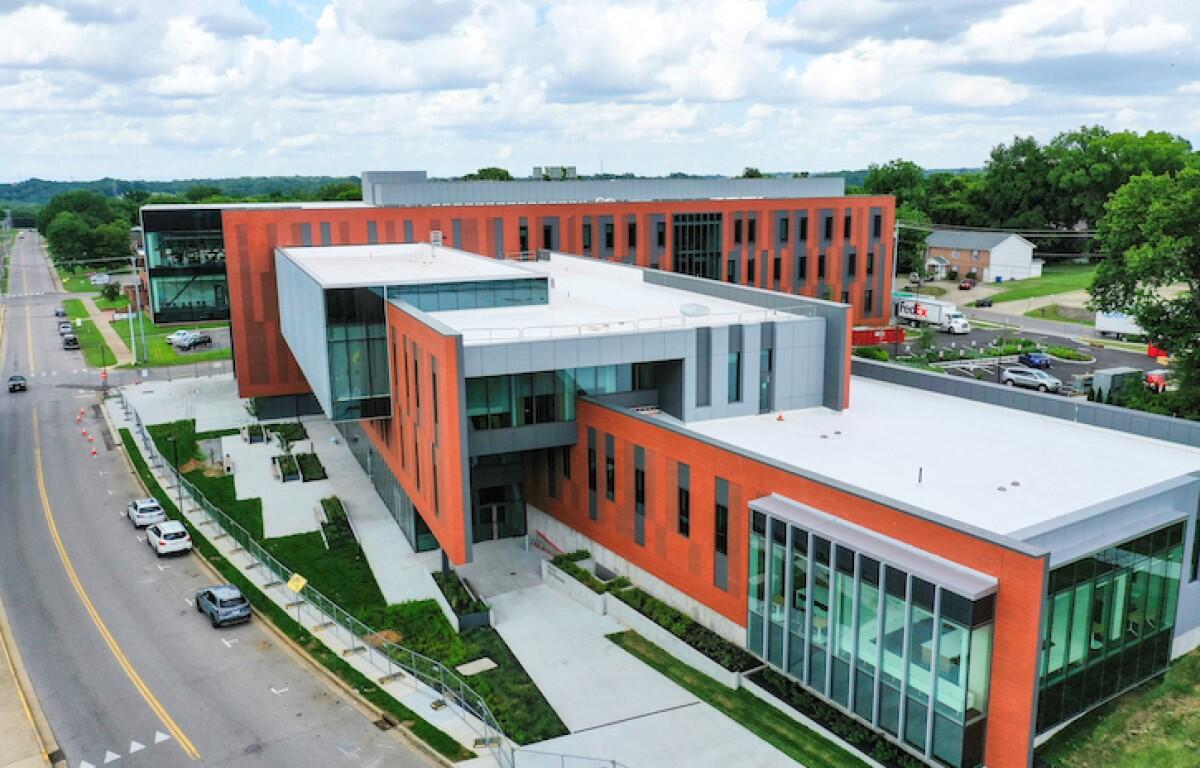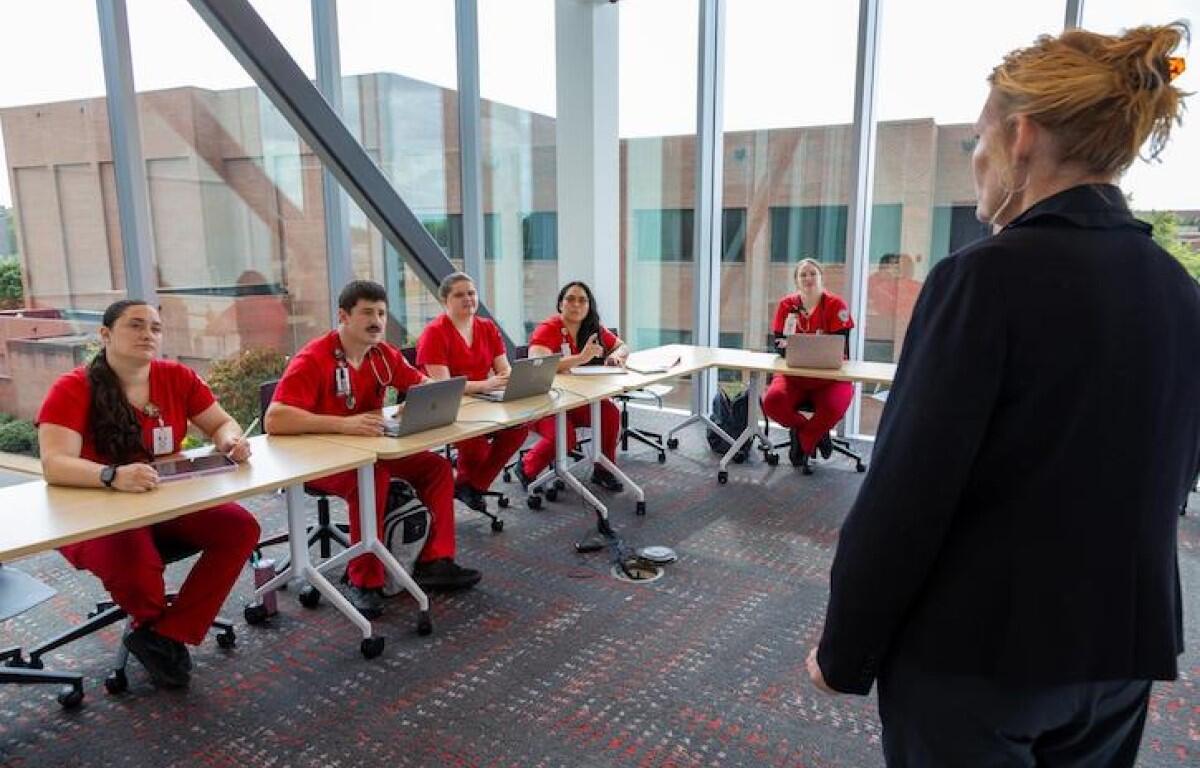CLARKSVILLE, TN – Future nurses, radiologic technologists, and medical laboratory scientists are now training side-by-side in Austin Peay State University’s Health Professions Building, which opened this semester and aims to mirror real-world healthcare teams.
The state-of-the-art facility features advanced labs, active learning classrooms, and specialized collaborative spaces. Austin Peay’s School of Nursing and the departments of Allied Health Sciences, Health and Human Performance, Psychological Science and Counseling, and Social Work are consolidated within the building.

“We are eager to fill the critical gaps in Tennessee’s healthcare workforce, and this new facility is pivotal in helping us do just that,” said Dr. Dlynn Williams, dean of the College of Behavioral and Health Sciences. “With simulation labs, state-of-the-art technology, and interactive learning spaces, our graduates will be prepared to make a lasting impact on the health of our region.”
At 114,600 square feet, the facility was designed to create hands-on learning opportunities through realistic healthcare scenarios. Students are working in simulated inpatient and outpatient rooms, home care apartments, and consultation rooms, using the latest medical and laboratory equipment.
“The new Health Professions Building represents a transformative investment in our students’ futures and in the healthcare workforce of our region,” said Dr. Karen Meisch, dean of the College of Science, Technology, Engineering and Mathematics. “This facility is not just a building; it’s a commitment to excellence in healthcare education and to meeting the critical workforce needs of Middle Tennessee.”
Dr. Adrienne Wilk, coordinator of the Nursing Simulation Center, is leading many of these students in interdisciplinary exercises. Each session includes preparatory assignments, detailed prebriefings, 20–30-minute scenarios, and guided debriefings.
“We’re emphasizing supportive, non-graded learning environments with no ‘gotcha’ moments to ensure our students can learn without fear,” Wilk said. “The scenarios also cover empathy, communication, and trauma-informed care.”
The simulations incorporate nursing, radiology, medical laboratory science, social work, and criminal justice, since professionals in those roles often work together.
“I’m excited about the interprofessional education opportunities that we’ll have when students and faculty from six disciplines are united under one roof,” said Jane Semler, professor of medical laboratory sciences. “The Health Professions Building will have a realistic hospital setting, with the laboratory in the same building as the simulated patient care floor.”
Dr. Perry Scanlan, chair of the Department of Allied Health Sciences, said another of the facility’s major goals is to keep pace with evolving healthcare technology. As the largest academic building on campus, it is well-positioned for future growth.
“The radiologic science program students will work with brand new, state-of-the-art X-ray equipment and a portable that will allow for larger classes and technology opportunities,” he said. “It makes them more prepared for today’s in-demand jobs as radiologic scientists.”
Students are also able to work in a fully functional diagnostic laboratory, equipped with the latest analyzers used in hospitals across the region. The lab offers various testing services for APSU students, faculty, and staff, with plans to utilize the new space to provide services for the public.
“In the diagnostic lab, we’re creating a place where students learn by doing, and where our work directly improves community health,” said Julie McKinney, director of the APSU Diagnostic Laboratory. “We are so excited for this collaborative, educational space to train the next generation of healthcare lab workers, bringing together education and community service in one state-of-the-art location.”
The Health Professions Building’s opening comes at a critical time for Tennessee’s healthcare system, which faces significant workforce shortages across multiple disciplines. Construction was made possible through support from the Clarksville-Montgomery County Community Health Foundation and the Tennessee General Assembly.
“This new facility will not only transform our campus – both physically and academically – it will improve public health for our neighbors, friends and family,” APSU President Mike Licari said. “Students will collaborate with others in different fields, making them better healthcare professionals, and the building will provide important public clinical space to serve different populations, including veterans and low-income citizens.”


